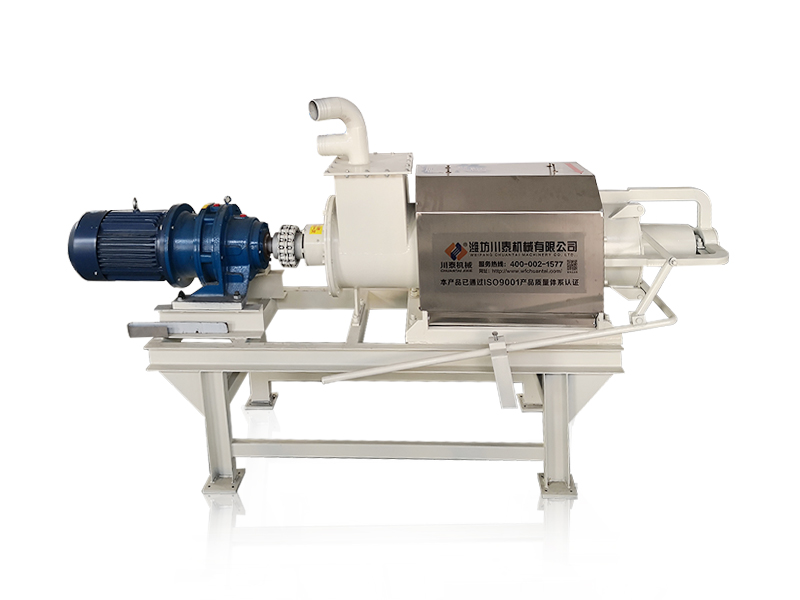Industry news
Considerations for Using Solid-Liquid Separators

Introduction:
Solid-liquid separators play a crucial role in various industrial processes by efficiently separating suspended solids from liquid streams. These separators are utilized in diverse applications such as wastewater treatment, food processing, mining, and more. To ensure optimal performance and longevity of solid-liquid separators, it is essential to consider certain factors during installation, operation, and maintenance. In this article, we will explore key considerations for using solid-liquid separators.
Selection of Appropriate Separator Type:
Different industries require specific types of solid-liquid separators. Centrifuges, sedimentation tanks, and filter presses are common examples. It is important to carefully assess the nature of the solids and the desired level of separation efficiency before choosing the appropriate separator.
Proper Installation:
Ensure that the separator is installed correctly according to the manufacturer's guidelines. Proper installation is critical for achieving optimal performance and preventing issues such as leakage or uneven separation.
Maintenance of Operating Conditions:
Regularly monitor and maintain the operating conditions of the separator. Factors such as flow rate, pressure, and temperature can significantly impact its performance. Deviations from recommended operating conditions may lead to decreased efficiency or even damage to the equipment.
Material Compatibility:
Consider the compatibility of materials with the substances being processed. The separator's components should be resistant to corrosion or erosion caused by the characteristics of the liquid and solid materials encountered during the separation process.
Cleaning and Fouling Prevention:
Develop a routine cleaning schedule to prevent the buildup of solids on the separator's surfaces. Fouling can reduce efficiency and, over time, damage the equipment. Regular maintenance, including cleaning or replacement of filter media, is crucial for sustained performance.
Monitoring and Control Systems:
Implement monitoring and control systems to track the performance of the solid-liquid separator. Automated systems can help optimize operation by adjusting parameters based on real-time conditions, ensuring consistent and efficient separation.
Safety Measures:
Prioritize safety by implementing necessary precautions and safety features. This includes emergency shutdown systems, proper ventilation in the installation area, and compliance with safety standards to protect operators and the surrounding environment.
Training for Operators:
Provide comprehensive training for operators responsible for the solid-liquid separator. Well-trained personnel can identify potential issues early, perform routine maintenance, and operate the equipment effectively.
Compliance with Regulations:
Ensure that the solid-liquid separator meets relevant regulatory requirements. Compliance with environmental, safety, and industry standards is essential to avoid legal issues and ensure responsible industrial practices.
Conclusion:
Proper utilization of solid-liquid separators is crucial for industries relying on effective separation processes. By carefully considering the factors mentioned above, operators can enhance the performance, reliability, and safety of solid-liquid separators in their industrial operations. Regular maintenance, adherence to guidelines, and a commitment to safety contribute to the longevity and efficiency of these essential industrial components.
Recommend
- Revolutionizing Agriculture with Straw Dewatering Machines2024-01-25
- Revolutionizing Dewatering Processes with Plastic Film Dewatering Machines2024-01-25
- The Rising Trend of Marijuana Water Removal Appliances2024-01-24
- Revolutionizing Cannabis Processing: The Role of Dehydration Machines in the Industry2024-01-24
- Revolutionizing Industry: The Modern Hemp Fiber Extraction Machine2024-01-23
NEWS
NEWS
Contact us
QQ:1272370381
Mob:+86 13053656336
TEL:+86 15684339888
Email:chuantaiscrewpress@gmail.com
ADD:Weifang City, Shandong Province,China
